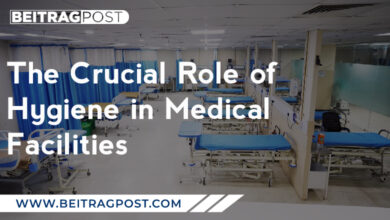Understanding the Impact of Maternal Health on a Baby’s Neurodevelopment

The journey from conception to birth involves intricate processes that significantly influence a baby’s neurodevelopment.
Maternal health plays a crucial role in shaping the foundation for a child’s cognitive and emotional well-being.
In this article, we will explore the various aspects of maternal health and their impact on the neurodevelopment of infants.
Prenatal Nutrition and Cognitive Development
During pregnancy, a mother’s diet directly influences the cognitive development of her baby. According to The Agora Clinic, folic acid and omega-3 fatty acids are critical for the formation of the neural tube and brain structures.
Iron, obtained from lean meats and legumes, supports oxygen transport, benefiting overall brain health. Ensuring a balanced and varied diet rich in these nutrients promotes optimal cognitive development in the fetus, laying the foundation for a healthy brain.
The Role of Stress and Cortisol Levels
According to a report published by the NIH, maternal stress can elevate cortisol levels, impacting fetal development. High cortisol exposure during pregnancy is associated with altered brain development in the unborn child. Chronic stress may lead to long-term behavioral and cognitive consequences.
Implementing stress-management techniques, such as mindfulness and relaxation exercises, becomes crucial in mitigating potential risks. Supporting expectant mothers emotionally and providing resources for stress reduction can positively influence both maternal and fetal well-being.
Genetics and Epigenetics in Neurodevelopment
Genetic factors contribute significantly to neurodevelopment, but epigenetic influences shape how genes express themselves. Maternal lifestyle, nutrition, and exposure to environmental factors can modify gene activity during pregnancy.
Understanding these complex interactions provides valuable insights into potential interventions. It emphasizes the importance of creating environments that support positive epigenetic modifications, promoting optimal neurodevelopmental outcomes for infants.
Tylenol Use During Pregnancy
Recent studies have explored a potential link between prenatal Tylenol (acetaminophen) use and neurodevelopmental issues in children, sparking controversy. Research suggests an association between Tylenol and conditions like ADHD and ASD.
In light of these concerns, a wave of legal action has emerged, with parents filing a Tylenol autism lawsuit against manufacturers of the product. Allegations include failure to warn consumers about potential risks associated with Tylenol use during pregnancy. As per the latest updates from Lawsuit Legal News, there are 441 pending claims in the Tylenol autism MDL as of December 2023.
These legal actions are part of a growing conversation around the safety of Tylenol during pregnancy and its potential impact on children’s health. TorHoerman Law emphasizes seeking legal counsel if you suspect that prenatal Tylenol exposure has affected your child.
The scientific community emphasizes the need for further investigation to establish a clear causal relationship. Expectant mothers are advised to consult healthcare professionals regarding pain relief options during pregnancy, considering the potential risks associated with frequent Tylenol use.
The Impact of Maternal Mental Health on Child Behavior
Maternal mental health significantly influences child behavior and emotional well-being. Conditions such as depression and anxiety during pregnancy can affect the developing fetal brain.
Hormonal and biochemical changes associated with maternal mental health may contribute to altered neurotransmitter levels in the fetus, influencing behavior. Addressing maternal mental well-being through therapy, support systems, and early intervention is essential for fostering a positive emotional environment for both mother and child.
Environmental Toxins and Neurological Risks
Exposure to environmental toxins during pregnancy poses potential risks to fetal neurodevelopment. Substances like lead, mercury, and certain pesticides may impact the developing nervous system.
Identifying and minimizing exposure sources, such as contaminated water or workplace hazards, is crucial. Public awareness campaigns and regulatory measures can contribute to reducing environmental risks, ensuring a safer developmental environment for the growing fetus.
Importance of Adequate Prenatal Care
Regular prenatal care plays an important role in monitoring maternal health and ensuring optimal outcomes for both mother and baby. Healthcare providers can identify and address potential risks early in the pregnancy, offering interventions and support as needed.
Accessible and comprehensive prenatal care includes regular check-ups, screenings, and education on healthy practices. By prioritizing prenatal care, we can enhance maternal well-being, promote healthy fetal development, and contribute to positive neurodevelopmental outcomes for infants.
In essence, maternal health intricately molds a child’s neurodevelopment. Considerations like prenatal nutrition, stress management, and environmental safeguards are crucial.
Emerging concerns around Tylenol highlight the need for vigilant prenatal care. A holistic approach, addressing genetics, mental health, and environmental risks, is necessary for optimal outcomes. In prioritizing these facets, we chart a course toward fostering lifelong cognitive and emotional well-being in children.




